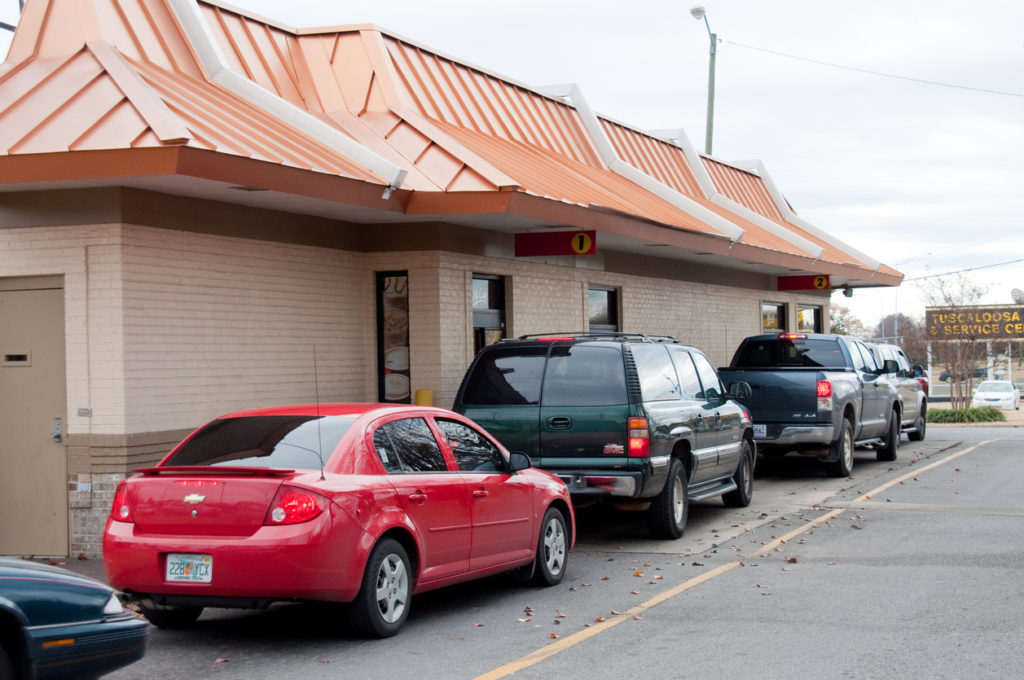
Perhaps the most interesting change the QSR (quick-service restaurant) space underwent amidst the pandemic was their shift in services. Rather than completely revamping their business models, QSRs reinvented their existing operations in order to offer safer, faster, and more efficient drive-thru, delivery, and pickup services.
The reasoning behind these new services is clear. The pandemic proved that QSRs need to meet consumers — who crave convenience, consistency, and quality — where they are at. While the pandemic will eventually subside, consumer expectations won’t. And the companies who commit to responding to these needs now will be rewarded with customer loyalty for years to come.
Multiple QSRs have responded to these consumer demands by developing prototypes for what has been coined as the “restaurant of the future.” These new restaurant concepts may utilize an array of transformative technologies, but they also place unprecedented demands on existing security infrastructure.
“Many companies had been running the same technology stack for years and then had a mad rush to add new technology, which brings vulnerabilities,” says Mark Cline, senior vice president of sales at Netsurion. “Anything that wasn’t previously on a restaurant’s network is at risk, whether that’s a point of sale, a camera, or an HVAC system.”
The pandemic combined with overwhelming consumer transparency has resulted in a unique challenge for QSRs. These establishments cannot afford to completely ignore consumer demands and fail to innovate, yet they also cannot revamp their operations and entirely abandon their core security principles. Either outcome will be dire.
Instead, QSRs need to pivot their security strategy now so that it is equipped to support unforeseen technological changes in the future.
Movement Towards Innovation
The transition from in-person to touchless dining was largely unavoidable. Consumers spoke, and establishments were forced to listen. QSRs such as Burger King are spearheading these changes, which were primarily caused by two main factors:
- Burger King has over 6,500 drive-thrus in the U.S. In 2020, 85% of the QSR’s sales consisted of drive-thru orders. This is a stark contrast to 2019 in which drive-thru orders contributed to only two-thirds of sales.
- Burger King delivery spiked during 2020. Delivery was offered in 2,000 new Burger Kings and over 6,000 locations now offer this service.
The overall footprint of these concept QSR restaurants is 60% less than their traditional locations, and what is perhaps most unique, is the fact they are designed to be a 100% touchless experience.
A spokesman with Burger King stated these new restaurants, which began construction in the past year, will focus on “flexibility, innovative features, and convenient options for how BK food can be ordered and delivered, to fulfill changing guests demands.”
Burger King isn’t the only QSR that is embracing the future. Taco Bell recently introduced its Go Mobile model restaurants by building out a “smart kitchen” technology that integrates with their mobile ordering app.
Their Go Mobile restaurant detects when guests arrive and suggests the quickest route, based on their order, for a seamless experience every time. The integration of mobile apps for customer data through loyalty is another avenue of innovation that has gained popularity as it helps customers navigate around the third-party delivery effect.
Pivoting Your Core Security Approach
The pressure QSRs face to innovate is not an isolated issue. This race to remain relevant in consumers’ eyes is also experienced heavily by these restaurants’ current security systems.
Companies are left wondering: what more can I do with the current infrastructure I have? How will incorporating new technologies shift my current security demands? And these are exactly the types of questions that they should be asking.
Actively reimagining how things could be done differently, with both short and long-term initiatives, is beneficial in planning for the growth and increased capabilities of your security system. Examining key innovations in the QSR space can aid establishments in determining the direction their security system should be heading in.
Let’s explore what some of the recent developments in the QSR space could potentially mean for a company’s core security strategy.
Navigating the Now
It is evident that notable QSRs such as Burger King and Taco Bell are determined to identify a consumer before they officially enter their premises. This can be readily accomplished through video analytics such as license plate recognition, which can be integrated into a QSR’s existing video surveillance system.
But what if a QSR wants to take this identification a step further and identify the actual consumer who is driving a particular vehicle? Again, this could be achieved through the integration of facial recognition, which can authenticate the identity of frequently visiting consumers. A QSR could use this information to have a consumer’s favorite meal swiftly prepared as soon as their identity is verified. This is an impressive feat that is bound to build consumer loyalty.
With 100% touchless QSRs on the rise, it is also crucial that consumers can still seamlessly interact with staff. This makes security technologies such as two-way audio vital as they ensure that constant communication is maintained between consumers and employees.
The list goes on and on.
Moving forward, it is clear that the amount of new technology available to QSRs is endless. Knowing which installations will best benefit the security of key stakeholders, however, is a whole other matter. It is one thing to envision a security strategy that can keep up with the changing world of QSR; it is another to execute this strategy in a manner that ensures that security objectives are being met.
To be frank, consumers expect more from QSRs in a post-pandemic world and are prepared to take their business elsewhere if they remain unimpressed by the level of service these establishments offer. Ironically, a “restaurant of the future” that continues to rely on outdated security protocols may be doomed to failure before it even opens its doors.
At 3Sixty Integrated, we are here to advance enterprise organizations across multiple verticals to develop and implement sustainable security solutions. QSRs deserve a security systems integrator partner that can align, anticipate and guide, and we are here to help. With over 19 years of experience, our team designs, installs, and maintains custom security solutions to keep your organization and assets safe and secure. Ready to get started? Contact us today to schedule a 30-meeting consultation or call us at 877) 374-9894.

